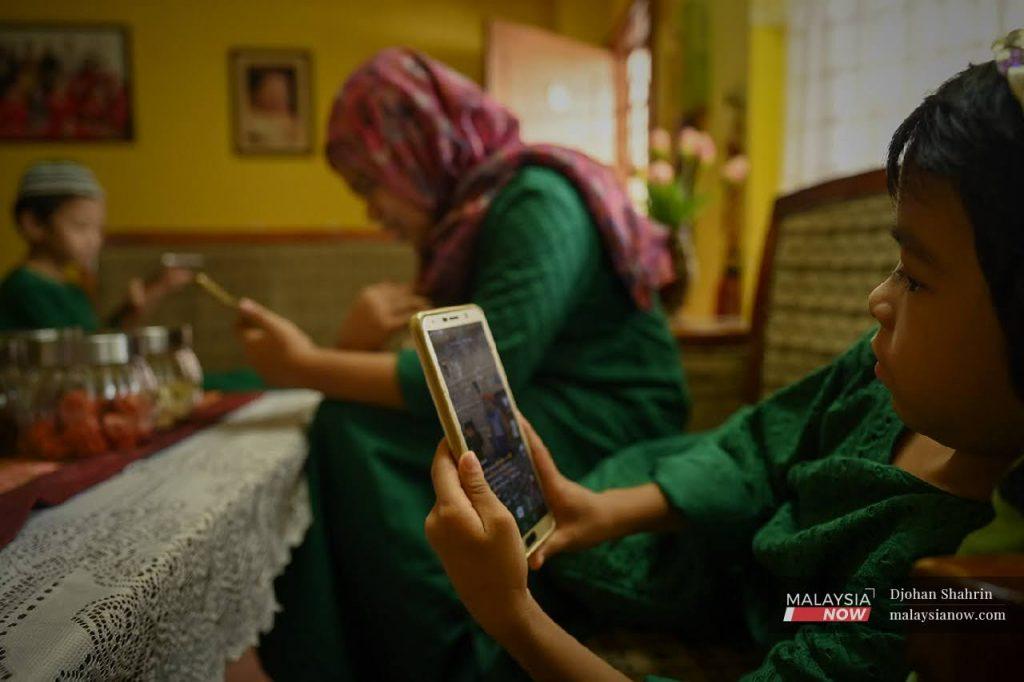From Down Under, a way to keep children safe online?
While Australia's plan to force parental consent for minors' use of social media is a good step, it is not foolproof, says expert.
Just In
An expert has hailed Australia’s plan to require parental consent for the use of social media by minors, suggesting that Malaysia take a similar step in this direction and pointing to the country’s child trafficking monitoring system which she described as one of the best in the world.
Speaking to MalaysiaNow, Shafizan Mohamed, a communications expert from International Islamic University Malaysia, said Australia could be expected to have done its homework on the issue based on its data on the use of social media by minors.
She said Malaysia, too, should take more serious measures to tackle the negative effects of social media on children.
Last month, reports said Australia was planning to make social media companies obtain parental consent for users under the age of 16.
It also threatened fines of up to A$10 million (US$7.5 million) for internet platforms which failed to comply.
A similar plan was implemented in California in July.
While Shafizan welcomed the proposed rules, she said parental permission is only the first step in handling the issue.
“There is also the question of children who are manipulated by their parents on social media,” she said.
“If parents give their permission, will the children be monitored? For me, it is a good initiative but not a bottom-line effort.”
In recent years, cases have cropped up showing the potential dangers of children using social media without supervision.
In 2016, a 13-year-old student was raped by a man whom she had gotten to know through the WeChat app.
Meanwhile, Unicef recently warned of an increase in risk for children using the internet, with exposure to sexual content identified as the biggest danger.
Concerns have also been raised over cyberbullying and addiction to online games among minors.
Shafizan spoke of several challenges to the implementation of plans such as Australia’s, including in defining social media.
“YouTube, WhatsApp and Google Classroom are social media platforms as well,” she said. “Are we going to cut off access for our children to those?”
She also said that social media companies, the government and other parties might wash their hands of the matter in such a plan, leaving parents fully accountable after giving consent to their children.
The Malaysian Communications and Multimedia Commission (MCMC) said Australia’s plan was a good initiative to boost the level of control.
“The question of whether Malaysia should follow in Australia’s footsteps needs to be studied in detail by the government, taking into consideration input and feedback from stakeholders and its feasibility as well as legal and technical contraints,” it said in a statement to MalaysiaNow.
Citing a study on internet users in 2020, it said there had been a 155% increase in the number of children using the internet but a drop of 9% from 2018 in parents’ awareness about parental control.
Only 34.4% of parents used parental control to protect their children on the internet.
According to data from MCMC, 9.7% of all internet users in the country are made up of those aged 19 and below.
Popular platforms include Twitter (13.3%), Instagram (12.4%) and YouTube (10.9%) while in terms of social messaging apps, KakaoTalk topped the list at 17.5% followed by WeChat (14.3%) and Line (13.5%).
MCMC advised parents and guardians to cultivate the use of the parental control tools available on such platforms.
Shafizan meanwhile said that while the use of social media among children in Malaysia is similar to the trend in other countries, differences remain in terms of socio-economic and educational factors.
“Children who are more affordable will have a better digital literacy rate,” she said.
“They will tend to use social media in order to create content whereas less affordable children, even if exposed to the internet, will be viewers and recipients of content.”
While parental permission would act as a filter for children’s activities, it is not a foolproof method of keeping them safe, she said.
“The best way is for parents to learn how to be ‘digital parents’,” she added. “They need to know how to monitor and educate their children to become more digitally resilient.
“We cannot fully monitor their use of social media, but if they are equipped with values and principles, they will know how to best use these platforms.”
Subscribe to our newsletter
To be updated with all the latest news and analyses daily.
Most Read
No articles found.
